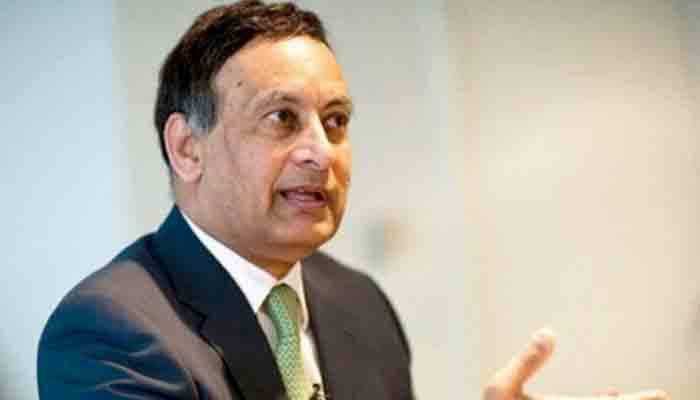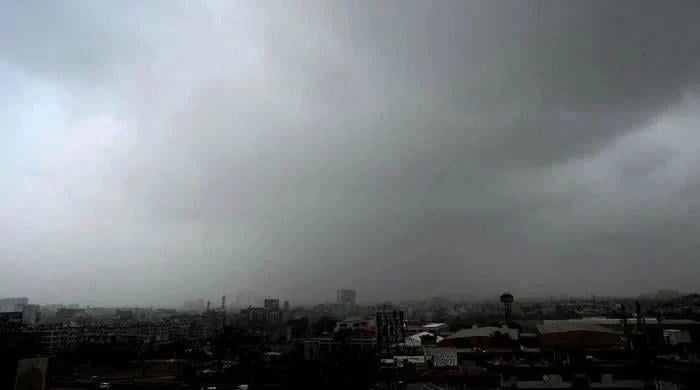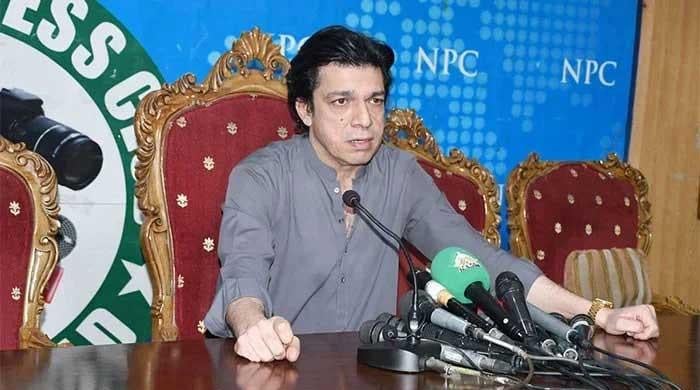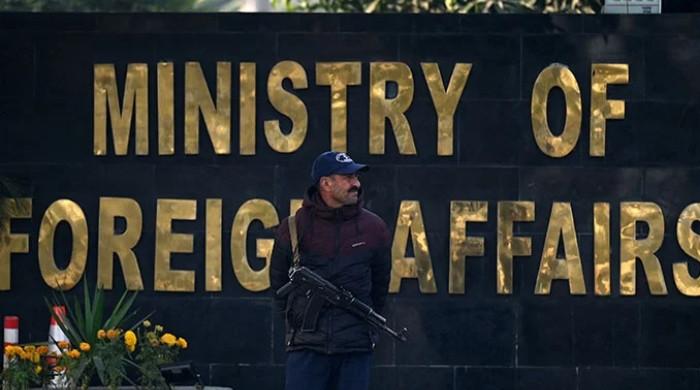Interpol dismissed two red warrant requests against Husain Haqqani
In 2018, Interpol turned down request for a red warrant against Haqqani on special request of former chief justice Saqib Nisar
August 28, 2021

- Husain Haqqani's Interpol notices resurface again.
- Global watchdog had turned the request for a red warrant against Haqqani on special request of former CJP Saqib Nisar.
- The FIA had registered a case against Husain Haqqani in March 2018 for criminal breach of trust, misuse of authority and embezzlement of funds.
LONDON: The Federal Investigation Agency (FIA) sources ran on Pakistani media a three-year-old story as a new lead on Husain Haqqani, quoting official sources as saying that the FIA had contacted Interpol to repatriate former Pakistani ambassador to the United States in a case related to the misuse of authority and embezzlement of funds – but Interpol dismissed the same request over three years ago.
In 2018, Interpol turned down the request for a red warrant against Haqqani on the special request of former chief justice Saqib Nisar.
This week, Pakistani news channels aired breaking news that the FIA has contacted Interpol to repatriate Husain Haqqani in a case related to the misuse of authority and embezzlement of funds.
However, it’s the same letter and the same story that was aired on media in early 2018 after Interpol was requested to issue a red warrant against Haqqani. But in April 2018, Interpol rejected the letter and dismissed the case against Haqqani through official communication – shared with The News by Interpol.
This correspondent had reported the same story on April 30, 2018, that FIA’s request for a red warrant has been disposed without any action against Haqqani.
Background
The FIA had registered a case against Husain Haqqani in March 2018 for criminal breach of trust, misuse of authority and embezzlement of funds under Sections 3, 4, 409, 420, and 109 of the Pakistan Penal Code following an inquiry conducted by the anti-corruption body.
After the request was turned down in April 2018, the PML-N government said that it was considering asking the Ministry of Foreign Affairs to approach the US government for Haqqani’s extradition after a second refusal by Interpol.
No steps were taken because as a matter of policy, the US government doesn’t consider extradition in political cases and in the case of Haqqani it’s almost impossible that the US will take any action.
In January 2018, former chief justice Saqib Nisar had reopened the Memogate case based on a petition filed in November 2011 by former PM Nawaz Sharif and several others, demanding that Haqqani be produced before the Supreme Court.
In April 2018, Interpol turned down the FIA’s request to issue arrest warrants for Haqqani and wrote: “The General Secretariat of the International Criminal Police Organisation, Interpol, hereby certifies that as of today (April 18, 2018), Mr Husain Haqqani, born on July 1, 1956, is not subject to an Interpol Blue Notice or diffusion and is not known in Interpol’s databases.”
In the last week of March 2018, Saqib Nisar remarked that he would not tolerate further delay in Haqqani’s return. He said no positive development has taken place regarding Haqqani’s return.
Interpol had refused to honour warrants against the former diplomat’s arrest issued by the Supreme Court on grounds that charges against him were ‘political’ and the criteria was not met.
On the Supreme Court’s insistence, the FIA registered a case against him for embezzlement and other alleged crimes and sent an arrest warrant request to Interpol.
Memogate scandal
The memo sent by Haqqani in 2011 allegedly mentioned a possible coup in Pakistan following the US raid in Abbottabad to kill Osama bin Laden. A judicial commission tasked to probe the case had concluded that the memo was authentic and authored by the former envoy.
The Memogate case was closed by the Supreme Court under former chief justice Asif Khosa on February 14, 2019.
The chief justice questioned whether Pakistan’s democracy and the state were so fragile that they could collapse because of a memo. “Does the state still feel threatened? Thank God, Pakistan’s foundations are strong and we need not worry about such matters,” the CJP had remarked.
Originally published in The News









